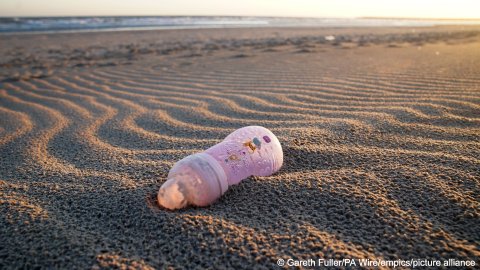Children at the France-UK Border Suffer Violent Hardships
The plight of children and babies caught in the crossfire of immigration policies at the France-UK border is a pressing humanitarian crisis. As numerous reports highlight, these vulnerable individuals face devastating violence and hardship while seeking refuge. This situation not only raises moral questions but also emphasizes the urgent need for reform and protective measures to ensure their safety.
The Impact of Immigration Policies
The stringent immigration policies in place at the France-UK border have led to a significant increase in the struggles faced by young migrants. Families fleeing violence and persecution often find themselves in dire circumstances, with children bearing the brunt of these brutal realities. The following points illustrate the challenges they encounter:
Exposure to Violence: Many children are subjected to physical and emotional abuse while attempting to cross the border. Reports document instances of violence perpetrated by both authorities and individuals exploiting their vulnerability.
Living Conditions: The environments in which these children are forced to live are often unsanitary and unsafe. Without proper shelter or access to basic necessities, their health and well-being are at constant risk.
Psychological Trauma: The traumatic experiences they endure can lead to long-term psychological issues. Many children suffer from anxiety, depression, and post-traumatic stress disorder (PTSD) as a result of their experiences.
Legal Ramifications and Immigration Reform
The current immigration framework fails to adequately protect children at the border. Many advocates are calling for urgent reforms to address these issues and provide better support for young migrants. Key areas of focus include:
Strengthening Protections: Ensuring that children are treated with dignity and respect, and that their rights are upheld throughout the immigration process.
Expanding Humanitarian Programs: Increasing access to humanitarian parole and other protective measures can significantly improve outcomes for vulnerable populations, including minors.
Collaboration with NGOs: Non-governmental organizations play a crucial role in providing support and resources. Collaborating with these entities can enhance the safety net for children at risk.
Community and Government Responses
In response to the alarming situation at the France-UK border, various communities and organizations have stepped up to provide aid. Some notable initiatives include:
Support Services: Local NGOs are offering legal assistance, medical care, and psychological support to affected families. These services are crucial for helping children navigate the complexities of the immigration system.
Awareness Campaigns: Advocacy groups are launching campaigns to raise awareness about the plight of children at the border, pushing for policy changes that prioritize their safety and well-being.
Community Engagement: Grassroots movements are mobilizing community members to provide resources, foster understanding, and create a more compassionate approach to immigration.
The Role of International Law
International law plays a significant role in protecting the rights of children. The United Nations Convention on the Rights of the Child (UNCRC) establishes guidelines that should govern the treatment of minors in all circumstances, including migration. The following principles are particularly relevant:
Best Interests of the Child: Any actions taken regarding a child must prioritize their best interests, ensuring that their well-being is at the forefront of decision-making.
Right to Asylum: Children have the right to seek asylum and must be afforded the opportunity to do so without facing violence or discrimination.
Moving Forward: A Call to Action
The situation at the France-UK border is a stark reminder of the need for a compassionate and just immigration system. It is imperative that governments and communities unite to address the challenges faced by children and families. This can be achieved through:
Policy Reform: Advocating for immigration reform that prioritizes the safety and dignity of migrants, especially children, is crucial.
Increased Resources: Allocating more resources to support vulnerable populations can alleviate some of the hardships experienced at the border.
Public Awareness: Educating the public about the realities faced by migrant children can foster a more empathetic and informed response to the crisis.
In conclusion, the ongoing violence and hardships endured by children at the France-UK border cannot be overlooked. By taking decisive actions and advocating for reform, we can begin to make strides toward a more humane and just immigration system that protects the most vulnerable among us. The time to act is now.










